
Côte d'Azur: The Jewel of the French Riviera
Côte d'Azur, also known as the French Riviera, is a stunning coastal region in the southeast of France. This picturesque destination is famous for its azure-blue waters, glamorous cities, and charming hillside villages. It stretches from the glitzy town of Saint-Tropez to the Italian border, offering a diverse range of experiences for every traveler. In cities like Nice, you can stroll along the Promenade des Anglais and enjoy the vibrant markets, museums, and historic architecture. Cannes, known for its international film festival, boasts luxury shopping and beautiful beaches. The tiny principality of Monaco offers a peek into the world of opulence with its famous casino and grand palace. For those seeking tranquility, the coastal villages of Èze and Saint-Paul-de-Vence provide breathtaking views and a peaceful ambiance. The region is also a haven for food lovers, with a cuisine that blends Mediterranean flavors with French sophistication. Whether you're exploring the rugged coastline, lounging on a sun-soaked beach, or savoring a delicious meal, Côte d'Azur promises an unforgettable experience.
Local tips in Côte d'Azur
- Visit in May or September to avoid the peak tourist season yet still enjoy great weather.
- Use the coastal trains for convenient and scenic travel between towns.
- Explore the local markets for fresh produce and unique souvenirs.
- Don't miss the chance to drive along the scenic coastal roads for breathtaking views.
- Try local specialties like bouillabaisse, ratatouille, and socca.
Côte d'Azur: The Jewel of the French Riviera
Côte d'Azur, also known as the French Riviera, is a stunning coastal region in the southeast of France. This picturesque destination is famous for its azure-blue waters, glamorous cities, and charming hillside villages. It stretches from the glitzy town of Saint-Tropez to the Italian border, offering a diverse range of experiences for every traveler. In cities like Nice, you can stroll along the Promenade des Anglais and enjoy the vibrant markets, museums, and historic architecture. Cannes, known for its international film festival, boasts luxury shopping and beautiful beaches. The tiny principality of Monaco offers a peek into the world of opulence with its famous casino and grand palace. For those seeking tranquility, the coastal villages of Èze and Saint-Paul-de-Vence provide breathtaking views and a peaceful ambiance. The region is also a haven for food lovers, with a cuisine that blends Mediterranean flavors with French sophistication. Whether you're exploring the rugged coastline, lounging on a sun-soaked beach, or savoring a delicious meal, Côte d'Azur promises an unforgettable experience.
When is the best time to go to Côte d'Azur?
Iconic landmarks you can’t miss
Colline du Château
Experience panoramic views and historical echoes atop Nice's iconic Colline du Château, a park with ancient Greek roots and medieval ruins.
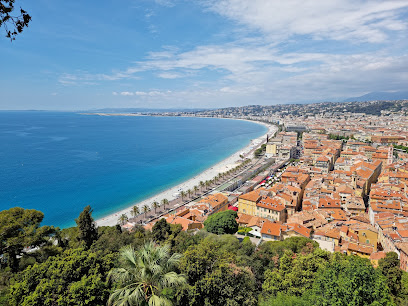
Port de Saint-Tropez
Experience the glitz and glamor of the French Riviera at the iconic Port de Saint-Tropez, a historic harbor and modern yachting destination.
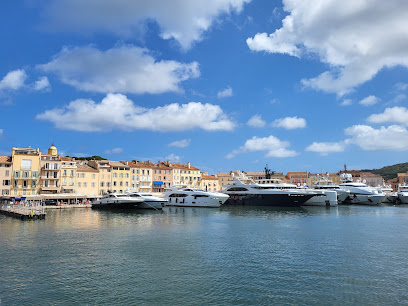
Gendarmerie Nationale
Step into the world of 'Le Gendarme de Saint-Tropez' and explore the history of cinema and law enforcement in this iconic French Riviera town.
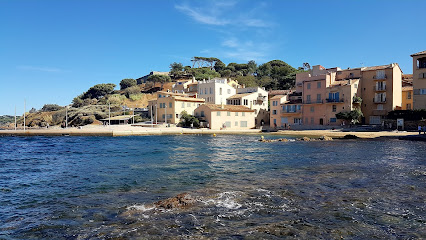
Place des Lices
Experience the authentic charm of Saint-Tropez at Place des Lices, a historic square famous for its vibrant markets and traditional boules games.
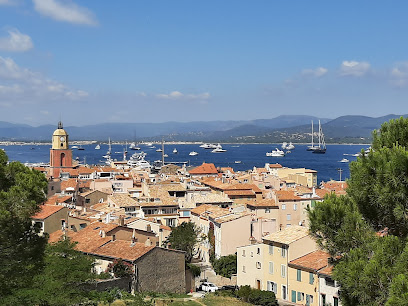
Citadelle de Saint-Tropez - Musée d'histoire maritime
Explore Saint-Tropez's maritime history at this 17th-century fortress with panoramic views of the French Riviera.
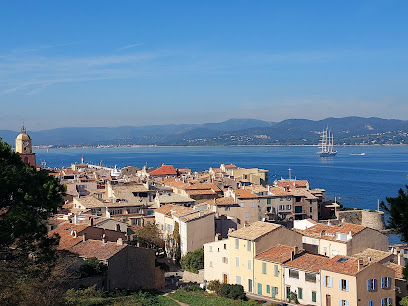
Place Giuseppe Garibaldi
Discover Place Giuseppe Garibaldi in Nice: a historic square blending Baroque architecture with vibrant culture and lively social scene.
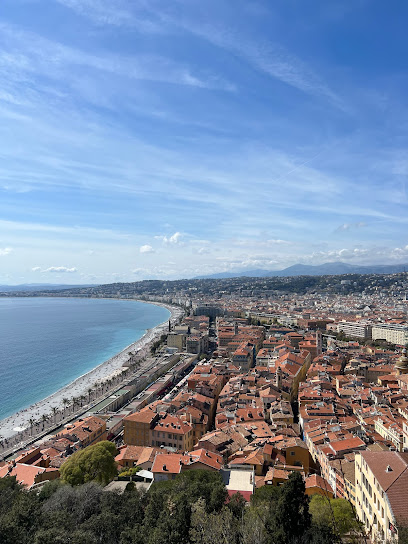
Pampelonne Beach
Experience the glamour of the French Riviera on Pampelonne Beach: sun, sand, celebrities, and sparkling turquoise waters await!
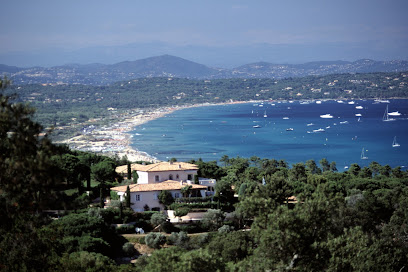
Grotte de Saint Cézaire
Explore a mesmerizing cave system near Grasse, France, with stunning geological formations and family activities for an unforgettable subterranean adventure.
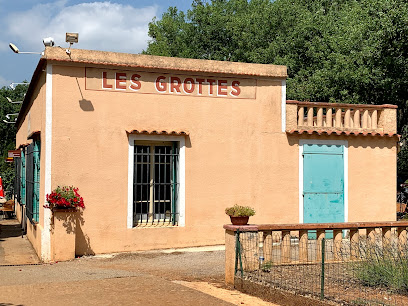
Chateau d'Hyères
Discover Château d'Hyères: a medieval ruin with panoramic views, rich history, and free access in the heart of Provence.
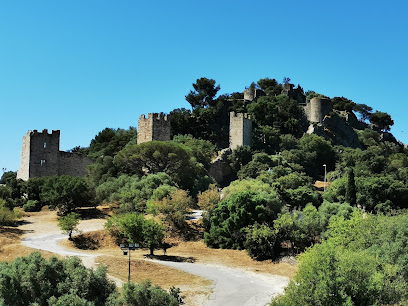
La Toison d'Or - Riviera Villages
Discover the perfect blend of camping charm and resort luxury at La Toison d'Or - a stunning getaway in Ramatuelle, France, perfect for families and couples.

Nietzsche path
Experience the stunning Nietzsche Path in Èze, a breathtaking hiking trail with panoramic views of the French Riviera and a touch of philosophy.
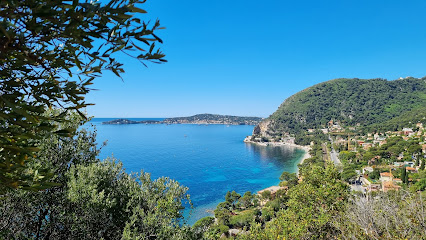
Airelles Saint-Tropez, Château de la Messardière
Experience timeless luxury and breathtaking views at Château de la Messardière, an iconic palace hotel in the heart of Saint-Tropez.

Monument aux Morts de Rauba-Capeù
A solemn and striking memorial in Nice honoring the soldiers who sacrificed their lives, with breathtaking views of the Mediterranean Sea.
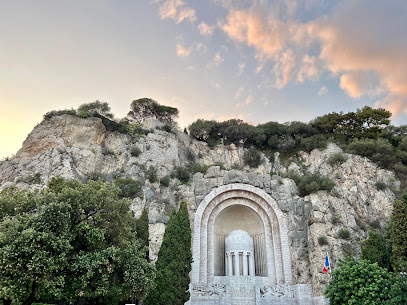
Hôtel Byblos
Experience legendary luxury and vibrant nightlife at this iconic five-star palace in the heart of glamorous Saint-Tropez.
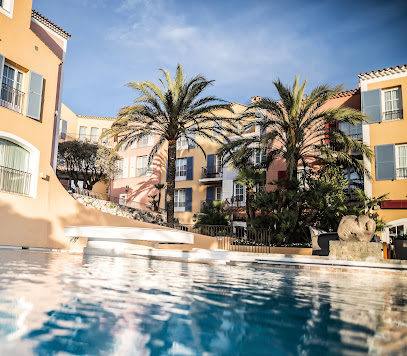
Plage de Tahiti
Experience the allure of Plage de Tahiti: white sands, azure waters, and vibrant beach clubs in glamorous Saint-Tropez.
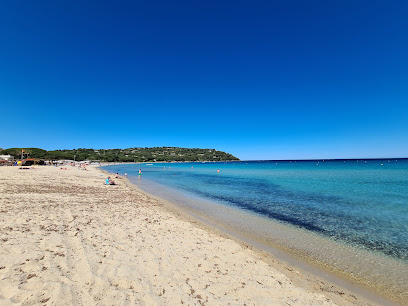
Unmissable attractions to see
Colline du Château
Ascend to Nice's Castle Hill for breathtaking panoramic views, historical ruins, and a tranquil park escape above the bustling city, offering a unique glimpse into the heart of the Côte d'Azur.
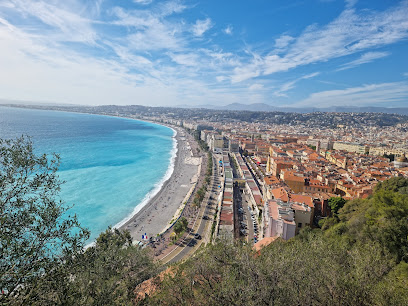
Parc national du Mercantour
Discover the Mercantour National Park: A pristine alpine paradise near the French Riviera, offering stunning landscapes, diverse wildlife, and endless outdoor adventures.
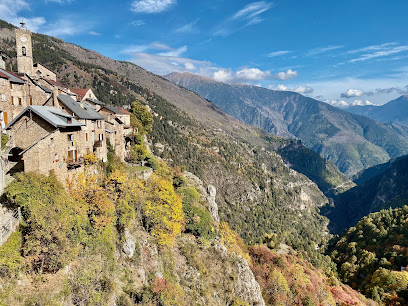
Gendarmerie Nationale
Discover the captivating history of Saint-Tropez at the Musée de la Gendarmerie et du Cinéma, where film and law enforcement intertwine in a celebration of local heritage and cinematic magic.
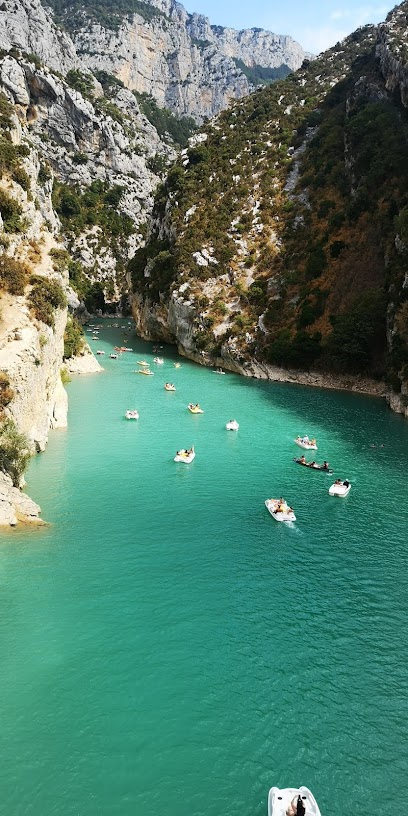
Roc D'Azur
Experience the world's largest mountain bike event in Fréjus, France, with races, a free bike show, and a vibrant festival atmosphere for cycling enthusiasts of all levels.

Port de Sainte Maxime
Discover the heart of Sainte-Maxime at its vibrant marina: stunning views, waterfront dining, and easy access to the French Riviera's best attractions and boat trips.

Gigaro Beach
Discover Gigaro Beach in La Croix-Valmer: Golden sands, azure waters, and stunning coastal trails await on the French Riviera, offering a blend of relaxation and exploration.
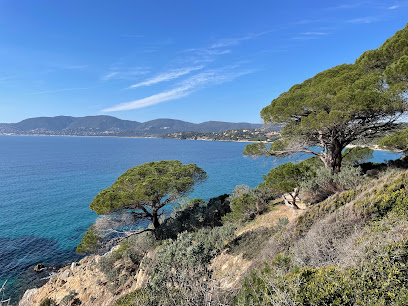
Le Sentier du Littoral, Cap d'Antibes
Discover the breathtaking beauty of Cap d'Antibes on the Sentier du Littoral, a scenic coastal path offering stunning views, hidden coves, and a glimpse into the area's rich history.
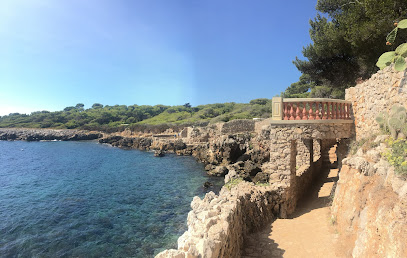
Grotte de Saint Cézaire
Explore a mesmerizing cave system near Grasse, France, with stunning geological formations, family activities, and Provençal charm, offering an unforgettable subterranean adventure.
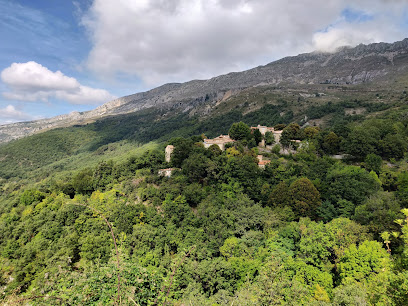
Nietzsche path
Hike the inspiring Nietzsche Path from Èze-sur-Mer to the medieval village of Èze, where stunning Mediterranean views meet philosophical history on this challenging and rewarding trail.
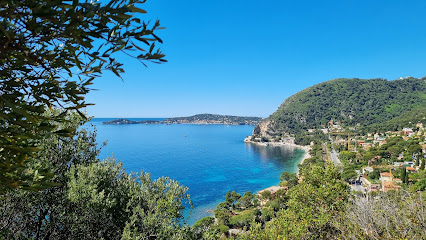
Plage de Port Grimaud
Discover Plage de Port Grimaud: A family-friendly beach with golden sands, turquoise waters, and stunning views of Saint-Tropez, nestled in the heart of the French Riviera.
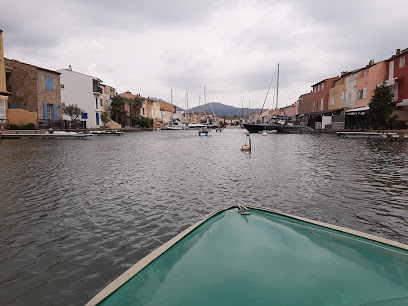
Les Moulins de Paillas
Discover the historic windmills of Ramatuelle, offering panoramic views and a glimpse into Provence's agricultural past, where tradition meets breathtaking scenery on the French Riviera.
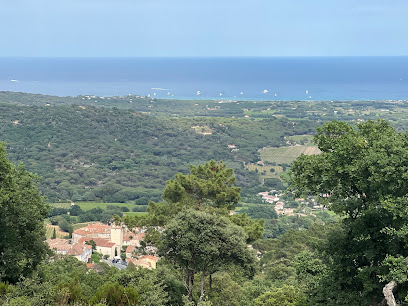
Plage de Cavalaire-sur-Mer
Discover the allure of Plage de Cavalaire-sur-Mer: golden sands, turquoise waters, and a vibrant Riviera atmosphere await in this family-friendly paradise nestled between Saint-Tropez and Le Lavandou.
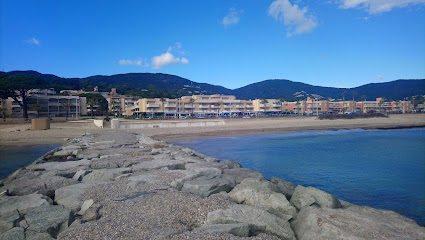
Le Pont des Fées
Discover the enchanting Pont des Fées in Grimaud, a medieval aqueduct steeped in legend, offering scenic hikes and a glimpse into Provence's rich history and natural beauty.
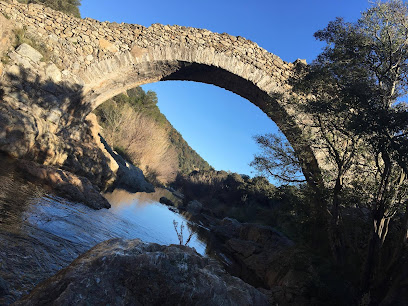
Tour Portalet
Discover the historic Tour Portalet in Saint-Tropez, a 15th-century sentinel offering breathtaking views and a glimpse into the town's maritime past, nestled in the charming La Ponche district.
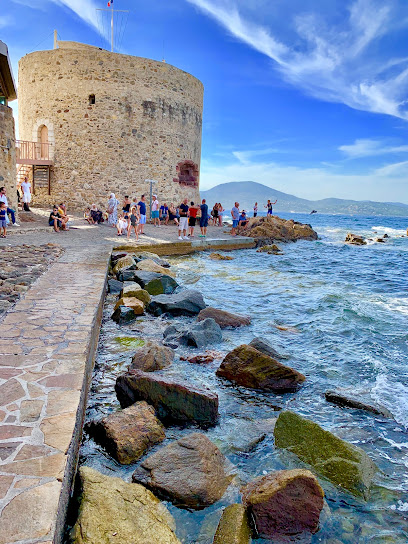
Domaine de la Croix
Discover the essence of Provence at Domaine de la Croix: a historic vineyard offering exquisite wines, cellar tours, and stunning views in the heart of the Saint-Tropez peninsula.
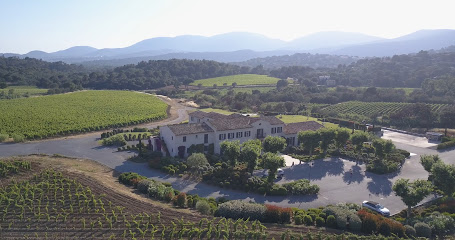
Essential places to dine
La Pomme de Pin
Discover La Pomme de Pin in Ramatuelle - where exquisite Italian and French cuisine meets charming Mediterranean ambiance.
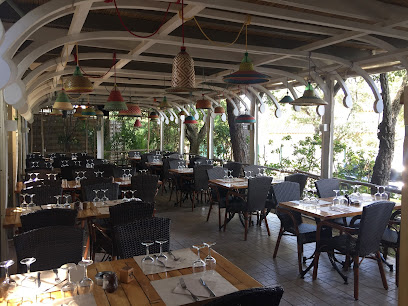
Plage Keller - Restaurant Le César
Discover Plage Keller: A beachfront culinary paradise in Antibes offering exquisite Mediterranean cuisine and breathtaking views.
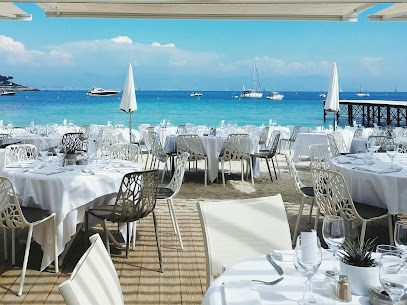
Restaurant Mirazur
Experience Michelin-starred haute French cuisine with stunning Mediterranean views at Restaurant Mirazur in Menton.
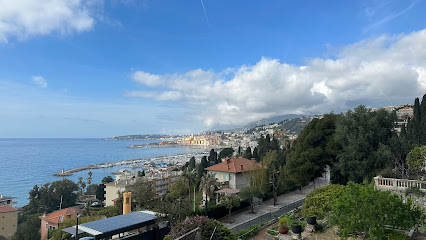
Château Eza
Experience luxury at Château Eza: where breathtaking views meet exquisite haute French cuisine in the enchanting village of Èze.

Le Girelier
Experience exquisite seafood dining at Le Girelier in Saint-Tropez - where French culinary tradition meets breathtaking coastal views.
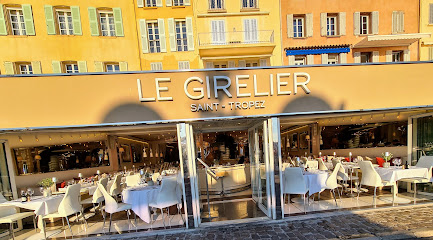
Le Grand Café de France
Experience exquisite French cuisine at Le Grand Café de France in Nice - where tradition meets innovation in a charming setting.
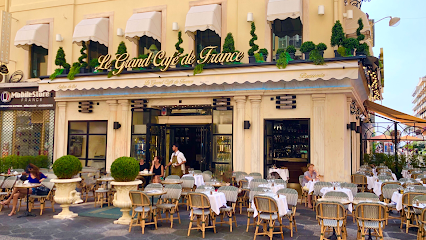
Cap Riviera
Savor exquisite French cuisine at Cap Riviera in Antibes – where every dish tells a story.
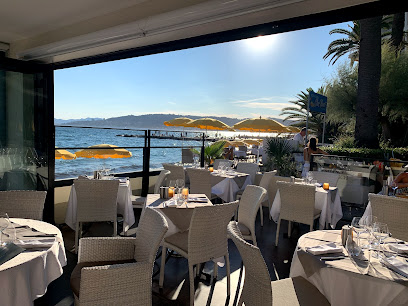
Pearl Beach Saint-Tropez
Discover Pearl Beach: A Mediterranean gem in Saint-Tropez offering exquisite dining and stunning seaside views for an unforgettable experience.
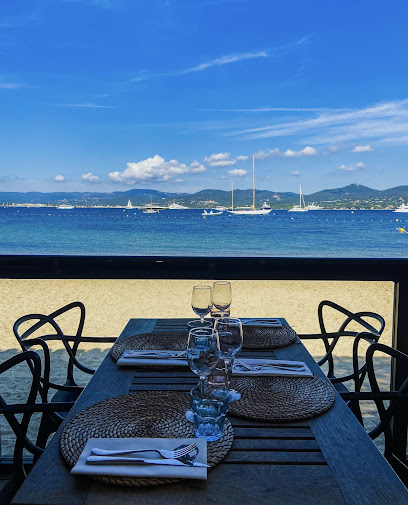
L'Assiette Provençale
Discover L'Assiette Provençale: A culinary haven in Cannes serving exquisite French and Mediterranean dishes amidst breathtaking harbor views.
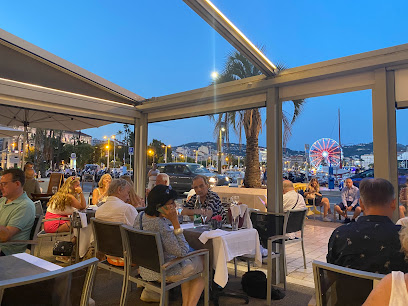
Restaurant Les Graniers
Experience exquisite French and Mediterranean cuisine at Restaurant Les Graniers in Saint-Tropez, where stunning sea views meet culinary artistry.
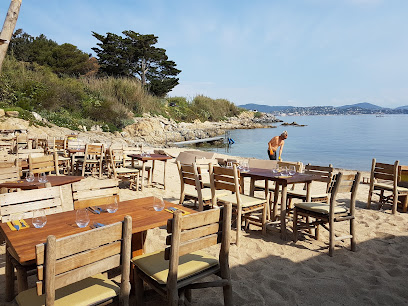
Restaurant L'Arazur
Discover the exquisite flavors of France at Restaurant L'Arazur in Antibes – where fine dining meets local culinary artistry.
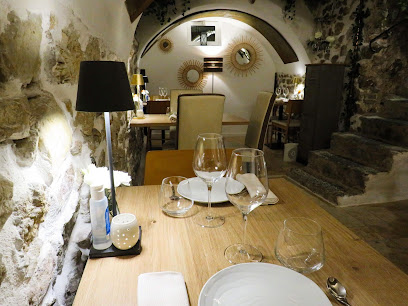
L'Auberge Provençale
Discover authentic Provençal cuisine at L'Auberge Provençale in Le Lavandou—where tradition meets culinary excellence amidst stunning views.
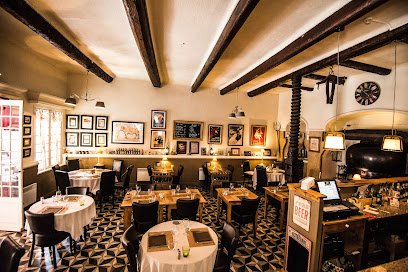
Le Figuier de Saint-Esprit
Discover exquisite Haute French cuisine at Le Figuier de Saint-Esprit in Antibes—where every meal is a masterpiece crafted with passion.
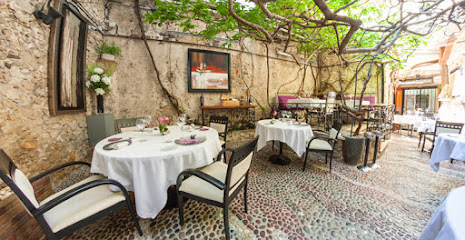
Anjuna Beach
Discover Anjuna Beach: A breathtaking coastal gem in Èze offering stunning views, delightful dining experiences, and endless relaxation.
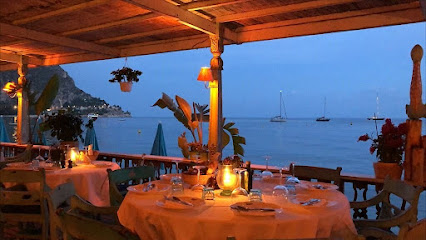
Restaurant L'Azur
Experience exquisite French and Mediterranean cuisine at Restaurant L'Azur with stunning sea views along Cagnes-sur-Mer's promenade.
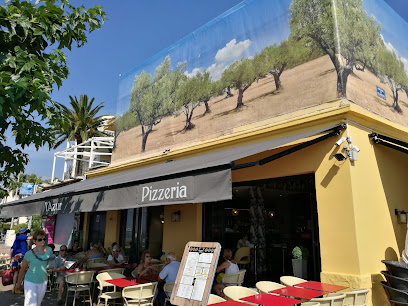
Markets, malls and hidden boutiques
Polygone Riviera
Discover the ultimate shopping and dining experience at Polygone Riviera, where luxury meets leisure in Cagnes-sur-Mer.
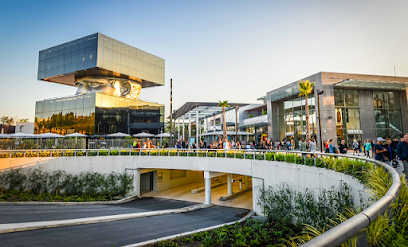
Galeries Lafayette Nice Masséna
Discover the luxurious shopping experience at Galeries Lafayette Nice Masséna, where elegance and style meet in the heart of Nice.
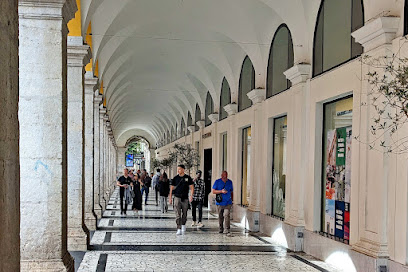
La bougie de St Tropez
Experience the essence of Saint-Tropez at La Bougie de St Tropez, the premier gift shop for exquisite scented candles and artisanal treasures.
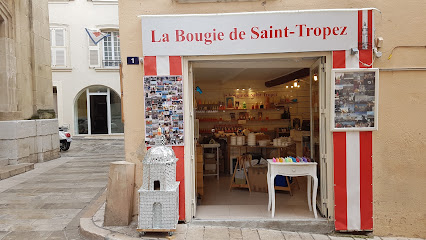
DIOR Saint-Tropez Store
Explore the epitome of luxury shopping at DIOR Saint-Tropez, where elegance meets high fashion in a stunning coastal setting.
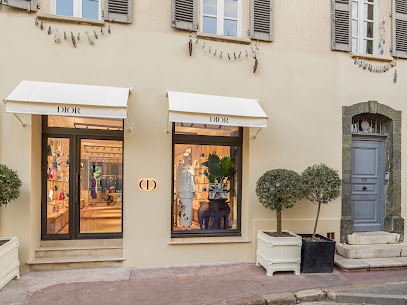
Côté Provence-Côté Mer
Explore the vibrant treasures of Côté Provence-Côté Mer in Saint-Raphaël, where local craftsmanship meets the beauty of Provence.
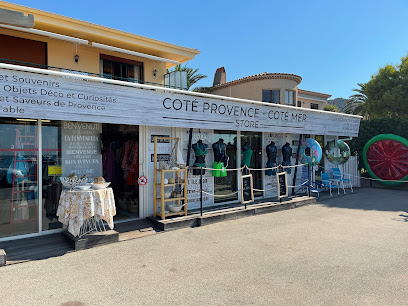
Le Depot
Discover unique vintage treasures at Le Depot, the premier consignment shop in Saint-Tropez, where style meets affordability.
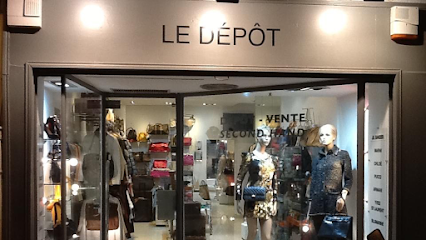
Taman Antik
Discover exquisite home goods and interior design inspiration at Taman Antik in Gassin, where French elegance meets artisanal craftsmanship.
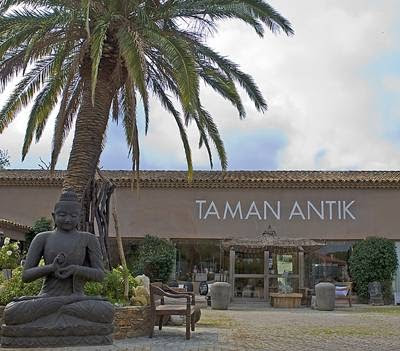
FROM FUTURE - Saint-Tropez
Experience the chic fashion of FROM FUTURE in Saint-Tropez, where Mediterranean style meets contemporary design.
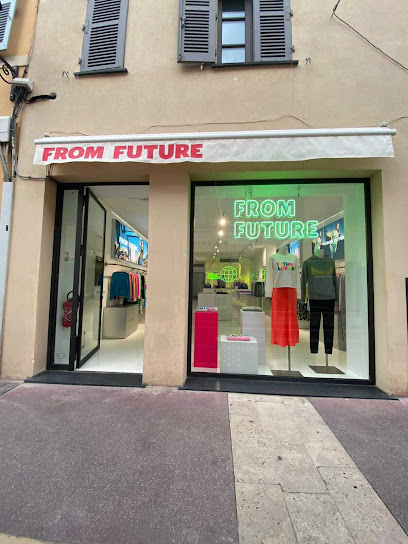
Au Marche De Provence
Discover the essence of Provence at Au Marche De Provence, your go-to souvenir store in Nice for unique local treasures.
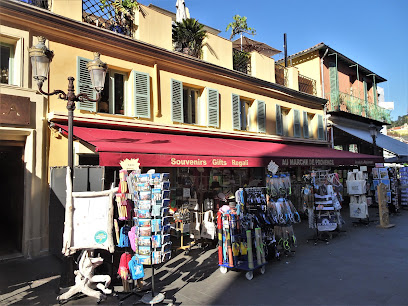
Mood Concept Store Apple Authorized Reseller Marshall
Discover the perfect blend of technology and fashion at Mood Concept Store in Saint-Tropez, featuring top electronics, trendy jeans, and unique accessories.
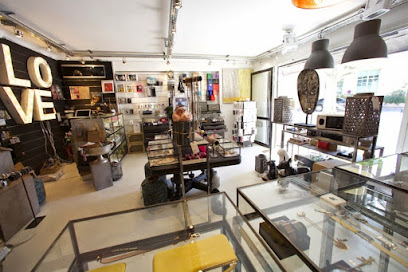
JUST IN PROVENCE
Discover the essence of Provence at Just In Provence, where artisanal gift baskets bring a taste of France to your travels.
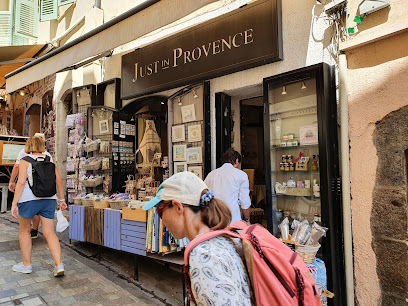
Outlet store by la clef des marques
Experience luxury shopping at Outlet Store by La Clef des Marques in Saint-Tropez, where top fashion brands meet unbeatable outlet prices.
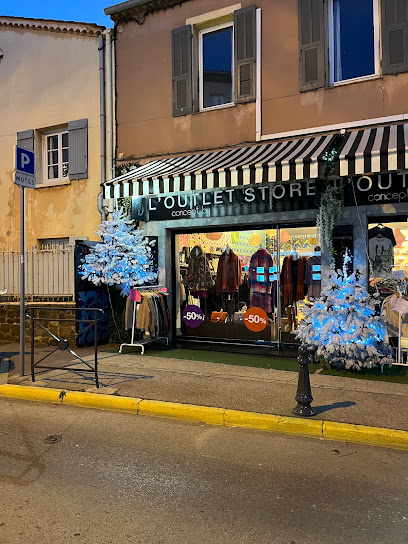
Cadeaux Côté Soleil Décoration
Explore Cadeaux Côté Soleil Décoration for unique gifts and artisanal treasures in the heart of Cannes.
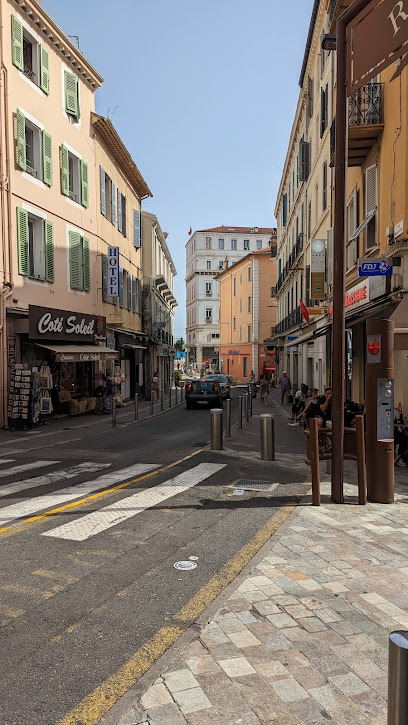
Un Été à Gassin
Discover unique gifts and local treasures at Un Été à Gassin, a charming gift shop nestled in the heart of the Provence region.
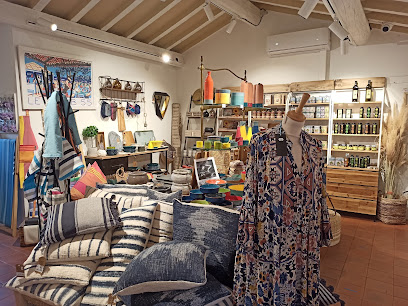
Les Galeries Tropeziennes
Explore the enchanting Les Galeries Tropeziennes in Saint-Tropez, where fashion meets the allure of the French Riviera.
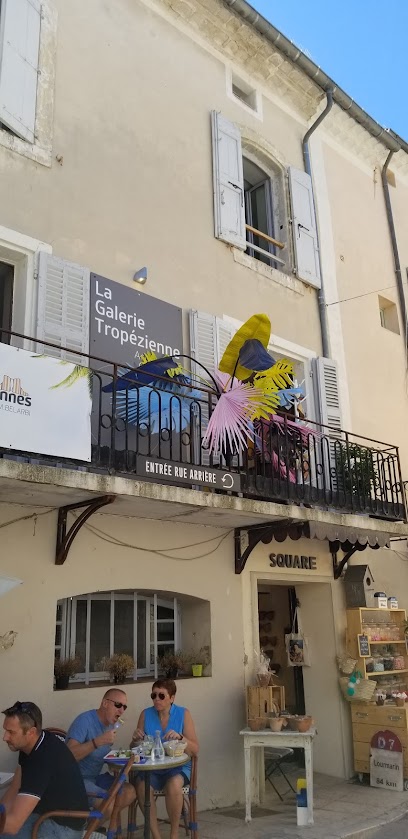
Essential bars & hidden hideouts
Les Distilleries Idéales
Experience the best cocktails in Nice at Les Distilleries Idéales, where innovation meets tradition in a vibrant and welcoming atmosphere.
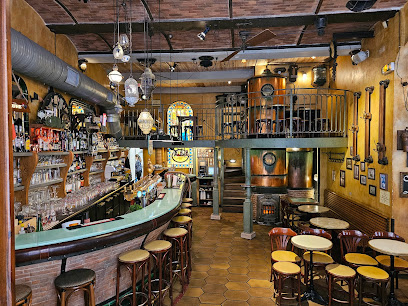
Bar Côté Jardin
Experience the vibrant atmosphere of Bar Côté Jardin in Toulon, where delightful drinks meet stunning waterfront views.
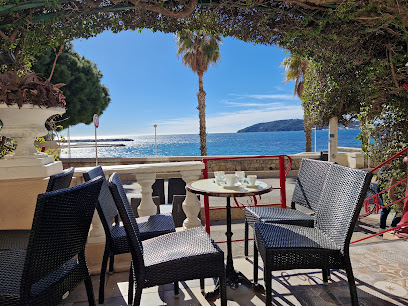
Le Bateleur
Discover the vibrant nightlife at Le Bateleur, a unique bar in Nice offering cocktails, live music, and delicious tapas in a cozy setting.
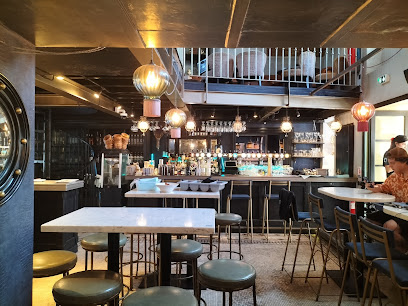
Bar du Port
Discover the flavors of French cuisine with stunning harbor views at Bar du Port in Saint-Tropez, a must-visit for food lovers.
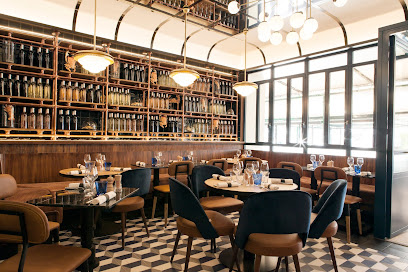
Long Bar
Experience the vibrant atmosphere of Long Bar in Grimaud, where cocktails, tapas, and live music come together in a stunning coastal setting.
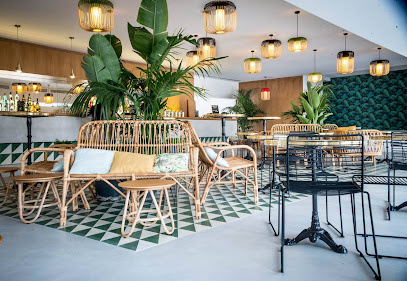
Absinthe bar
Discover the enchanting world of absinthe in Antibes, where cocktails, history, and atmosphere blend seamlessly for an unforgettable experience.
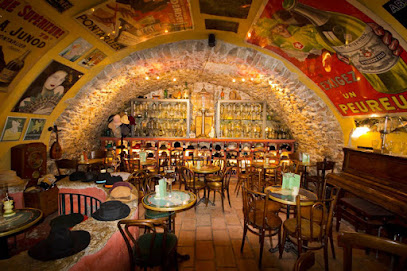
Kelly's pub la Grotte
Discover the vibrant atmosphere of Kelly's Pub la Grotte, a must-visit bar and restaurant in Saint-Tropez, offering local cuisine and refreshing drinks.
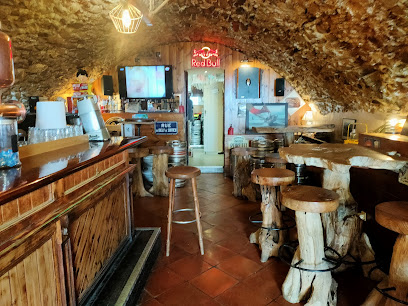
Bar Le Gorille
Experience the vibrant atmosphere of Bar Le Gorille in Saint-Tropez, where local flavors meet stunning marina views for an unforgettable dining experience.
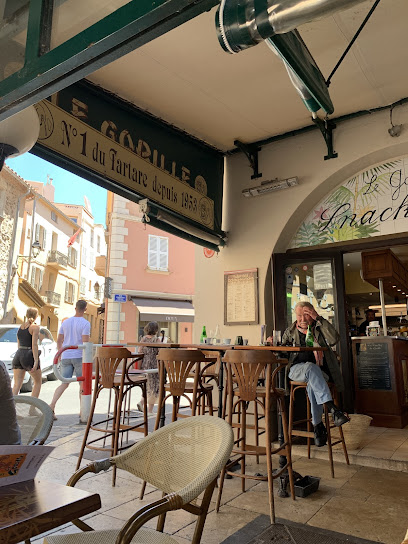
BAY SIDE
Experience the best of Nice at Bay Side, a charming wine bar offering an extensive selection and a vibrant atmosphere in the heart of the French Riviera.
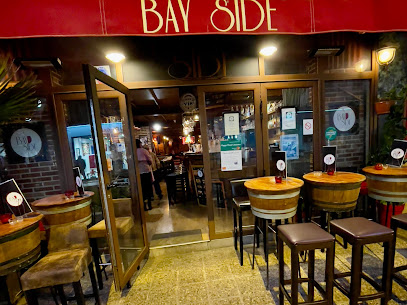
Bar à potes
Discover the vibrant atmosphere of Bar à Potes in Nice, where delightful drinks and local charm create the perfect escape.
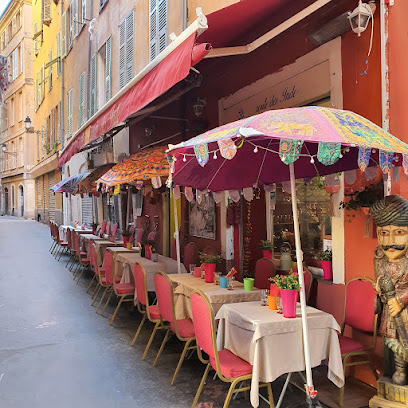
Cohibar
Discover Cohibar in Saint-Tropez: A lively cocktail bar blending exquisite drinks, live music, and vibrant nightlife on the French Riviera.
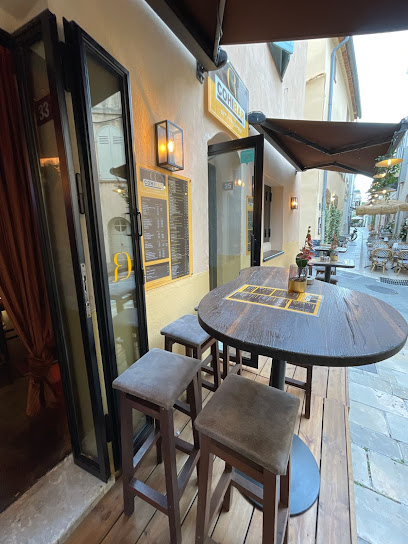
Le bar à thym
Discover the essence of French wine culture at Le bar à thym, a cozy wine bar in Sainte-Maxime offering exquisite selections and a warm ambiance.
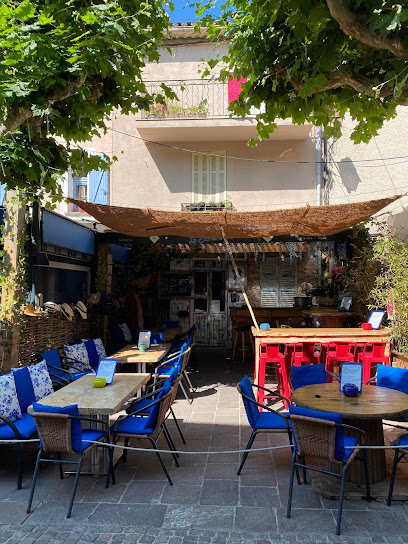
B. at Byblos Lounge Bar Saint-Tropez
Experience the ultimate in relaxation and luxury at B. at Byblos Lounge Bar in Saint-Tropez, where Mediterranean elegance meets vibrant nightlife.
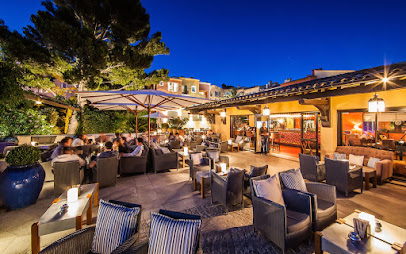
Bar de la Victoire
Discover the charm of Bar de la Victoire in Nice, where friendly service meets refreshing drinks in a cozy atmosphere.
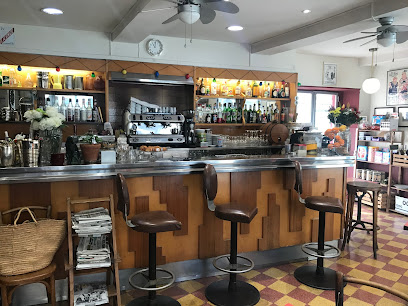
Local Phrases about Côte d'Azur
-
- HelloBonjour
[bohn-zhoor] - GoodbyeAu revoir
[oh ruh-vwahr] - YesOui
[wee] - NoNon
[nohn] - Please/You're welcomeS'il vous plaît/De rien
[seel voo pleh / deh ryehn] - Thank youMerci
[mehr-see] - Excuse me/SorryExcusez-moi/Désolé
[ehk-sku-zay mwah / day-zoh-lay] - How are you?Comment ça va ?
[koh-mahn sah vah] - Fine. And you?Bien. Et vous ?
[byehn et voo] - Do you speak English?Parlez-vous anglais?
[pahr-lay voo ahn-glay] - I don't understandJe ne comprends pas
[zhuh nuh kohm-prahnd pah]
- HelloBonjour
-
- I'd like to see the menu, pleaseJe voudrais voir la carte, s'il vous plaît
[zhuh voo-dray vwahr lah kart, seel voo pleh] - I don't eat meatJe ne mange pas de viande
[zhuh nuh mahnj pah duh vyand] - Cheers!Santé !
[sahn-tay] - I would like to pay, pleaseJe voudrais payer, s'il vous plaît
[zhuh voo-dray pay-ehr, seel voo pleh]
- I'd like to see the menu, pleaseJe voudrais voir la carte, s'il vous plaît
-
- Help!Au secours !
[oh suh-koor] - Go away!Allez-vous en !
[ah-lay vooz ahn] - Call the Police!Appelez la police !
[ah-peh-lay lah poh-lees] - Call a doctor!Appelez un médecin !
[ah-peh-lay uh may-dsahn] - I'm lostJe suis perdu(e)
[zhuh swee pair-doo] - I'm illJe suis malade
[zhuh swee mah-lahd]
- Help!Au secours !
-
- I'd like to buy...Je voudrais acheter...
[zhuh voo-dray ah-shuh-tay] - I'm just lookingJe regarde juste
[zhuh ruh-gahrd juhst] - How much is it?Combien ça coûte ?
[kohm-byen sah koot] - That's too expensiveC'est trop cher
[say troh shehr] - Can you lower the price?Pouvez-vous baisser le prix ?
[poo-vez voo beh-say luh pree]
- I'd like to buy...Je voudrais acheter...
-
- What time is it?Quelle heure est-il ?
[kell ur ay-teel] - It's one o'clockIl est une heure
[eel ay tewn ur] - Half past (10)Dix heures et demie
[dees urz ay duh-mee] - MorningMatin
[mah-tahn] - AfternoonAprès-midi
[ah-preh mee-dee] - EveningSoir
[swahr] - YesterdayHier
[yehr] - TodayAujourd'hui
[oh-zhoor dewee] - TomorrowDemain
[duh-mahn] - 1Un
[uhn] - 2Deux
[duh] - 3Trois
[twah] - 4Quatre
[kahtr] - 5Cinq
[sank] - 6Six
[sees] - 7Sept
[seht] - 8Huit
[weet] - 9Neuf
[nuhf] - 10Dix
[dees]
- What time is it?Quelle heure est-il ?
-
- Where's a/the...?Où est...?
[oo ay] - What's the address?Quelle est l'adresse?
[kell ay lahd-rehs] - Can you show me (on the map)?Pouvez-vous me montrer (sur la carte)?
[poo-vez voo muh mohn-tray (soor lah kart)] - When's the next (bus)?Quand est le prochain (bus)?
[kahnd ay luh proh-shang (boos)] - A ticket (to ....)Un billet (pour ....)
[uhn bee-yay (poor)]
- Where's a/the...?Où est...?
History of Côte d'Azur
-
The Côte d'Azur, also known as the French Riviera, has a rich history that dates back to ancient times. The Greeks were among the first to settle in the region, establishing the city of Massilia (modern-day Marseille) around 600 BC. The Romans followed, leaving their mark with the construction of roads, aqueducts, and amphitheaters. Evidence of their presence can be seen in sites like the Roman ruins in Fréjus and the ancient Roman city of Cemenelum, now part of Nice.
-
During the Medieval period, the Côte d'Azur was a mosaic of small fiefdoms, each ruled by local lords. The region was influenced by the Counts of Provence and the House of Savoy. Important medieval structures, such as the Château de Grimaud and the fortifications in Antibes, still stand as testament to this tumultuous period. The region also saw the rise of the Knights Templar, who left behind a legacy of fortified chapels and commanderies.
-
The Renaissance brought a period of cultural revival to the Côte d'Azur, with influences from Italy spreading across the region. This era saw the construction of magnificent villas and gardens, such as the Villa Ephrussi de Rothschild in Saint-Jean-Cap-Ferrat. The Baroque period followed, leaving behind opulent churches and palaces, like the Chapelle de la Miséricorde in Nice and the Palais Lascaris, also in Nice.
-
The 19th century marked the transformation of the Côte d'Azur into a playground for the European elite. With the arrival of the railway in the mid-1800s, the region became accessible to wealthy aristocrats, artists, and writers. The British aristocracy was among the first to popularize wintering in the region, leading to the construction of grand hotels and villas. Queen Victoria herself visited the Côte d'Azur multiple times, further boosting its status as a luxury destination.
-
The Belle Époque, spanning from the late 19th century to the outbreak of World War I, was a period of unprecedented growth and glamour for the Côte d'Azur. Iconic landmarks such as the Hôtel de Paris in Monte Carlo and the Promenade des Anglais in Nice were established during this time. The region attracted a host of famous personalities, including artists like Henri Matisse and Pablo Picasso, who found inspiration in its stunning landscapes and vibrant culture.
-
The Côte d'Azur was not immune to the ravages of the World Wars. During World War II, the region was occupied by both Italian and German forces. The towns of the Riviera were heavily fortified, and many coastal areas were mined. After the war, the region underwent a period of recovery and rebuilding. The Cannes Film Festival, established in 1946, played a significant role in reviving the glamor and allure of the French Riviera.
-
Today, the Côte d'Azur is a blend of luxury and tradition, attracting visitors from around the world. The region continues to be a hub for the arts, hosting numerous festivals and events, such as the Nice Jazz Festival and the Monaco Grand Prix. Despite its modern development, the Côte d'Azur retains its historical charm, with preserved old towns like Vieux Nice and cultural landmarks like the Picasso Museum in Antibes.
Côte d'Azur Essentials
-
Côte d'Azur is well-connected by air, rail, and road. The major international airport is Nice Côte d'Azur Airport (NCE), which serves numerous international and domestic flights. From the airport, you can take a taxi, bus, or train to reach your destination within the region. Alternatively, you can arrive by train via the French national railway company, SNCF, which connects to major cities like Paris, Marseille, and beyond. If you prefer driving, the A8 motorway runs through the region, making it accessible by car.
-
Public transportation in Côte d'Azur is efficient and reliable. The region is served by an extensive network of buses and trams, particularly in cities like Nice, Cannes, and Antibes. The SNCF TER trains connect towns along the coast and inland. Taxis and ride-sharing services such as Uber are also available. Renting a car is a convenient option if you plan to explore the less accessible areas or travel at your own pace. Biking is popular in some areas, with rental services and bike lanes available.
-
The official currency in France is the Euro (EUR). Credit and debit cards are widely accepted in most places, including restaurants, shops, and hotels. ATMs are readily available throughout the region. It's advisable to carry some cash, especially when visiting smaller towns or markets. Contactless payment is becoming increasingly popular, so consider having an NFC-enabled card or mobile payment app.
-
Côte d'Azur is generally safe for tourists, but like any popular destination, it is important to stay vigilant. Petty crimes like pickpocketing can occur, particularly in crowded areas and public transport. Areas around Nice's Promenade des Anglais and Cannes' La Croisette can be hotspots for such activities. Avoid isolated areas at night and keep your belongings secure. Emergency numbers to remember are 112 for general emergencies and 17 for police.
-
In case of an emergency, dial 112 for immediate assistance. This number can be used for police, medical, or fire emergencies. For non-urgent medical issues, pharmacies are widely available and often have a green cross sign. Some larger cities like Nice have English-speaking medical facilities. It is highly recommended to have travel insurance that covers medical emergencies. Familiarize yourself with the location of the nearest hospital or medical center.
-
Fashion: Do dress stylishly but comfortably. French people appreciate a well-put-together look. Avoid overly casual attire like flip-flops and sportswear in upscale settings. Religion: Do be respectful when visiting religious sites. Men should remove hats, and women should cover their shoulders. Public Transport: Do validate your ticket before boarding. Don't speak loudly or play music in public transport. Greetings: Do use a polite greeting like 'Bonjour' when entering shops or starting conversations. A handshake is common in formal settings. Eating & Drinking: Do try local cuisine and wines. Don't rush through meals; dining is a leisurely activity.
-
To experience Côte d'Azur like a local, visit the open-air markets such as the Cours Saleya in Nice, where you can find fresh produce, flowers, and local delicacies. Take a stroll along the lesser-known coastal paths like the Sentier du Littoral in Antibes. Engage with locals and don't hesitate to ask for recommendations, as they are often proud of their region and happy to share tips. Consider visiting during the shoulder seasons (spring and fall) to avoid the tourist crowds and enjoy a more relaxed atmosphere.
Trending Landmarks in Côte d'Azur
-
Colline du Château
-
Port de Saint-Tropez
-
Gendarmerie Nationale
-
Place des Lices
-
Citadelle de Saint-Tropez - Musée d'histoire maritime
-
Place Giuseppe Garibaldi
-
Pampelonne Beach
-
Grotte de Saint Cézaire
-
Chateau d'Hyères
-
La Toison d'Or - Riviera Villages
-
Nietzsche path
-
Airelles Saint-Tropez, Château de la Messardière
-
Monument aux Morts de Rauba-Capeù
-
Hôtel Byblos
-
Plage de Tahiti
Nearby Cities to Côte d'Azur
-
Things To Do in Cannes
-
Things To Do in Nice
-
Things To Do in Fontvieille
-
Things To Do in Monaco-Ville
-
Things To Do in Les Moneghetti
-
Things To Do in Moneghetti
-
Things To Do in La Condamine
-
Things To Do in Monte Carlo
-
Things To Do in Larvotto
-
Things To Do in Saint Roman
-
Things To Do in La Rousse
-
Things To Do in Aix-en-Provence
-
Things To Do in Marseille
-
Things To Do in Avignon
-
Things To Do in Nîmes













